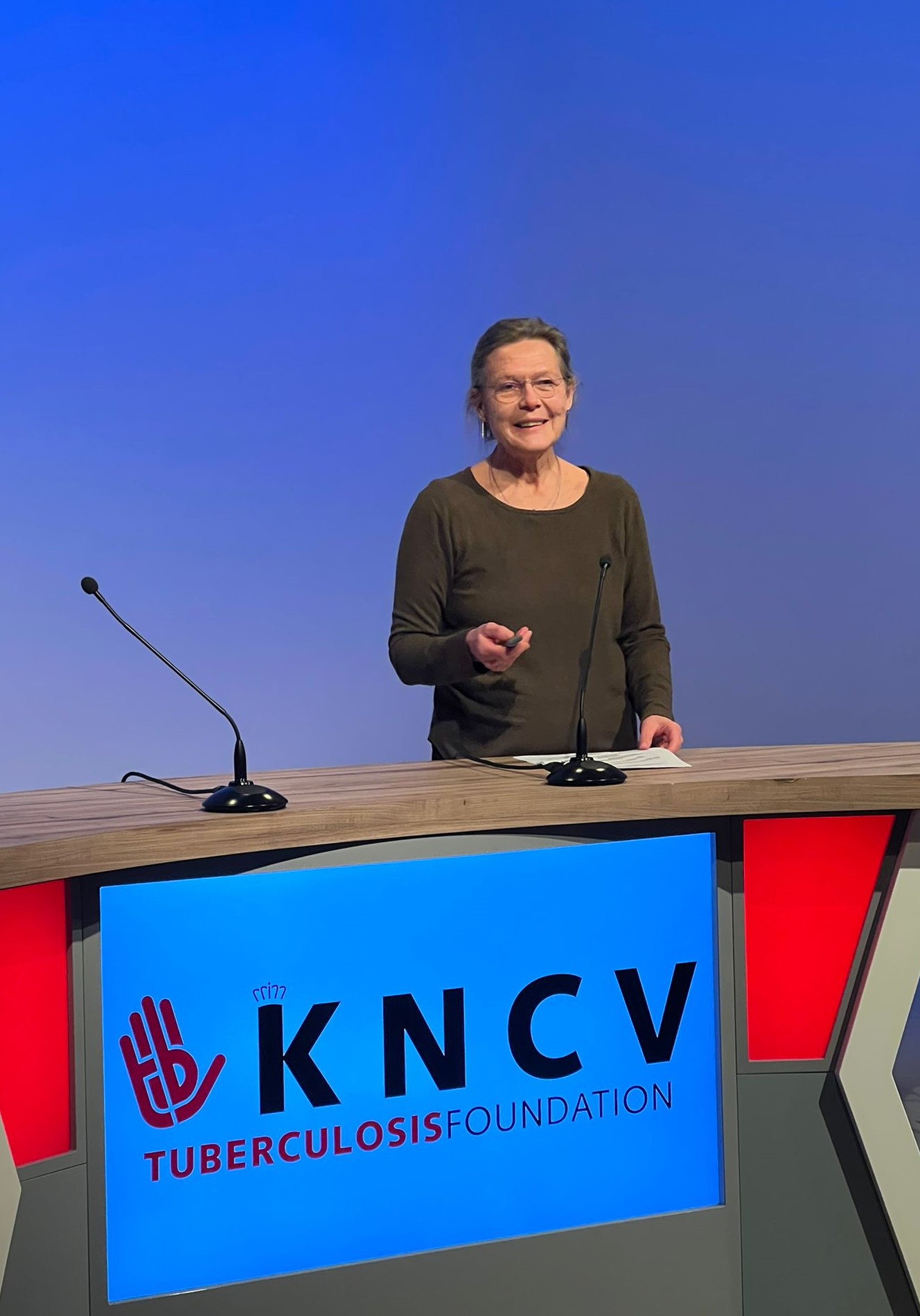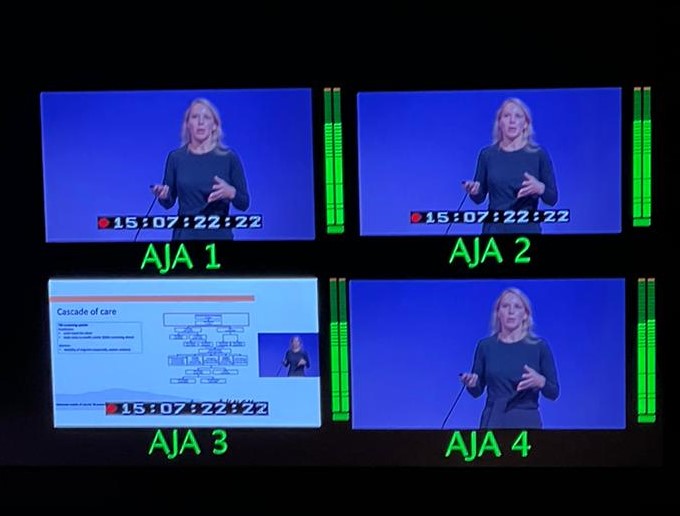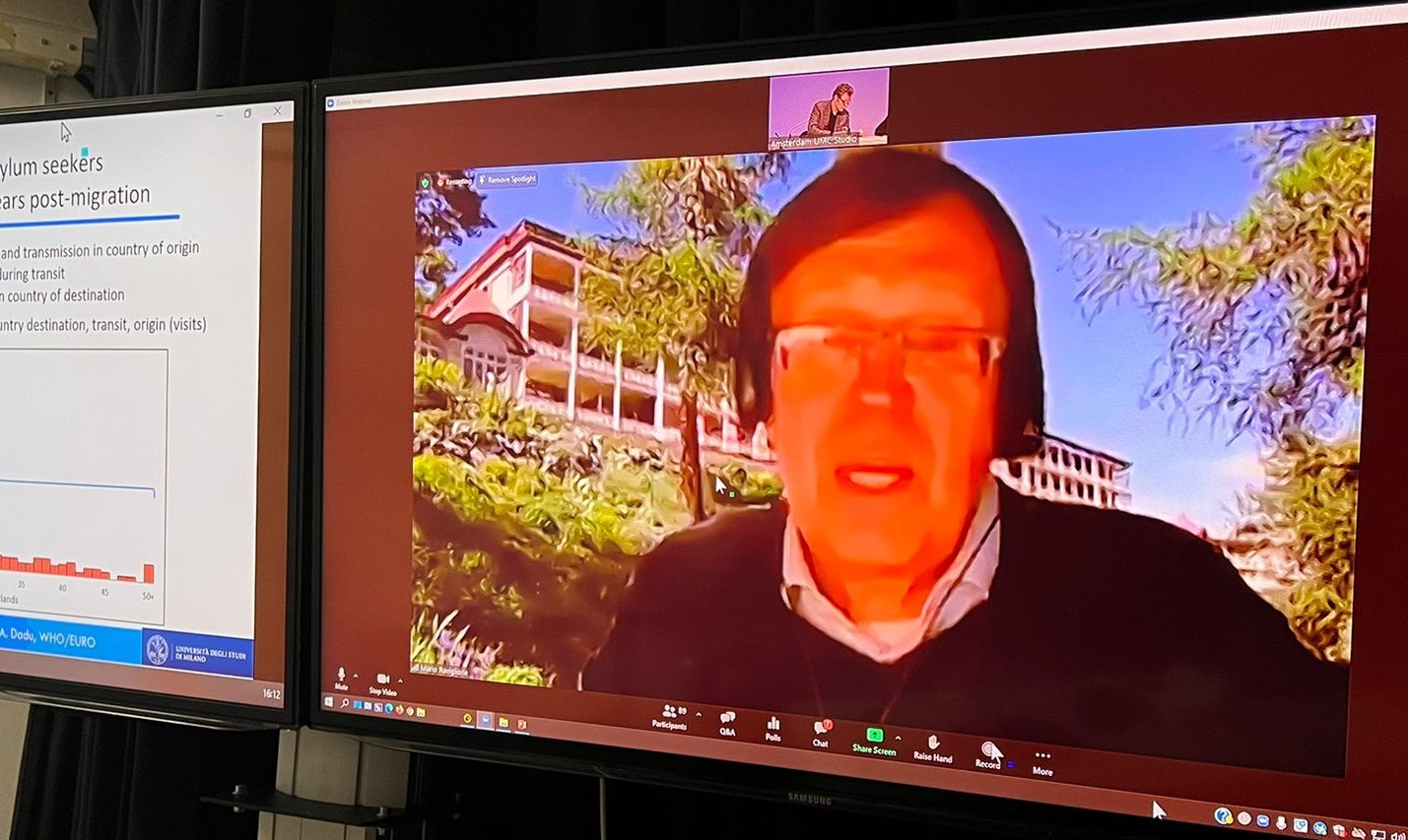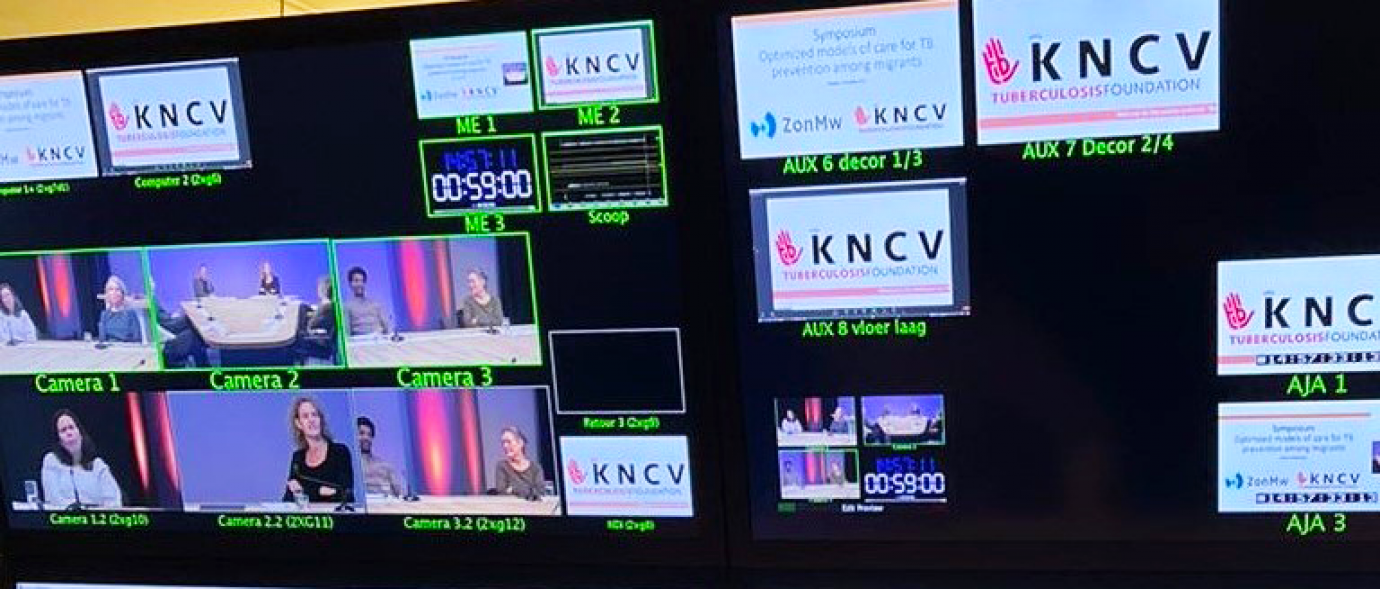On Tuesday, 7 December 2021, the symposium “TB prevention among high-risk migrants in low-burden countries” was held online. The symposium was organized by KNCV Tuberculosis Foundation to celebrate the successful completion of the ZonMW funded TB ENDPoint project.
 Tuberculosis (TB) can be prevented through detection of persons with latent TB infection (LTBI) and provision of TB preventive treatment (TPT) among those who have LTBI. Among other at-risk populations, the World Health Organization recommends countries with low burden of TB to consider providing TPT to migrants from high burden countries. The TB ENDPoint project studied the implementation of LTBI screening and TPT through optimized approaches and assessed the cost-effectiveness of the intervention for various high TB risk migrant populations.
Tuberculosis (TB) can be prevented through detection of persons with latent TB infection (LTBI) and provision of TB preventive treatment (TPT) among those who have LTBI. Among other at-risk populations, the World Health Organization recommends countries with low burden of TB to consider providing TPT to migrants from high burden countries. The TB ENDPoint project studied the implementation of LTBI screening and TPT through optimized approaches and assessed the cost-effectiveness of the intervention for various high TB risk migrant populations.
During this symposium we will recapture and discuss the results of the TB Endpoint project, as well as the experiences from other European low TB incidence countries with TB prevention among migrants. Please click here to go to the recording of the symposium.
Quotes from the symposium:

“Culture and lingual sensitive education is crucial for successful screening and preventive treatment of TB-infection among high-TB risk migrants.”
“High quality TB-infection screening among high TB risk migrants has potential to replace current chest X-ray screening policies.”
dr. Ineke Spruijt, TB consultant and epidemiologist at KNCV Tuberculosis Foundation
“Studies in Italy and The Netherlands show clearly that bold intersectoral policies and access to good-quality, migrant-sensitive health services for TB care and prevention are fundamental. If one really cares about people, good results are possible!”
Prof. dr. Mario Raviglione, University of Milan
“Similar to other public health activities, the key to a successful screening of migrants for TB is to listen to the communities and tailor public health interventions to meet and address their needs.”
dr. Dominik Zenner, University College London

“Our studies in Sweden show that voluntary screening for TB infection for asylum seekers can be cost-effective if targeted to those at highest risk of infection and progression to disease. Gaps in implementation are mainly related to clinicians decision making, while the asylum seekers to a very high degree follow medical advice.”
Prof. dr. Knut Lönnroth, Karolinska Instituted, Sweden

